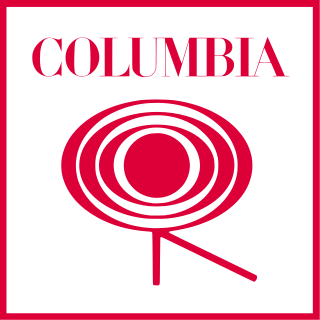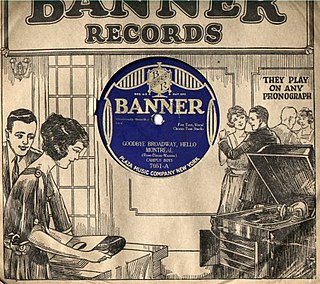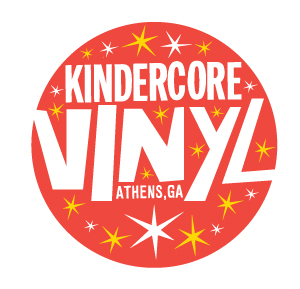
EMI Group Limited was a British transnational conglomerate founded in March 1931 in London. At the time of its acquisition by Universal Music in 2012, it was the fourth largest business group and record label conglomerate in the music industry, and was one of the "Big Four" record companies. Its labels included EMI Records, Parlophone, Virgin Records, and Capitol Records, which are now referenced under Universal Music due to their acquisition with the exception of Parlophone, as it is now owned by Warner Music.

Columbia Records is an American record label owned by Sony Music Entertainment, a subsidiary of Sony Corporation of America, the North American division of Japanese conglomerate Sony. It was founded on January 15, 1889, evolving from the American Graphophone Company, the successor to the Volta Graphophone Company. Columbia is the oldest surviving brand name in the recorded sound business, and the second major company to produce records. From 1961 to 1991, its recordings were released outside North America under the name CBS Records to avoid confusion with EMI's Columbia Graphophone Company. Columbia is one of Sony Music's four flagship record labels: Epic Records, and former longtime rivals, RCA Records and Arista Records as the latter two were originally owned by BMG before its 2008 relaunch after Sony's acquisition alongside other BMG labels.

Brunswick Records is an American record label founded in 1916.

Endless Summer is a compilation album by American rock band the Beach Boys, released on June 24, 1974. A collection of hits from the band's 1962–65 period, Endless Summer was compiled by their old label, Capitol Records, following the success of the film American Graffiti, in which several songs were featured. It revitalized the band's popularity after years of lukewarm sales, but also inspired nostalgia for the Beach Boys' early surfing and hot rod-themed music, repositioning the group as an oldies act.

Deutsche Grammophon is a German classical music record label that was the precursor of the corporation PolyGram. Headquartered in Berlin Friedrichshain, it is now part of Universal Music Group (UMG) since its merger with the UMG family of labels in 1999. Deutsche Grammophon is the world's oldest surviving established record company. Presidents of the company are Frank Briegmann, Chairman and CEO Central Europe of Universal Music Group and Clemens Trautmann.

Columbia Graphophone Co. Ltd. was one of the earliest gramophone companies in the United Kingdom.

Banner Records was an American record company and label in the 1920s and 1930s. It was created primarily for the S.S. Kresge Company, though it was employed as a budget label in other discount stores.

Gulf and Western Industries, Inc. was an American conglomerate. The company originally focused on manufacturing and resource extraction, but it began purchasing a number of entertainment companies beginning in 1966 and continuing through the 1970s. Most notable among the acquisitions were film studio Paramount Pictures in 1966, television studio Desilu Productions in 1967, arcade and later videogame manufacturer Sega in 1969, book publisher Simon & Schuster in 1975, and a number of music labels including Dot Records. Some of these properties were reorganized under the Paramount brand, with Dot Records becoming the nuclei of Paramount Records and Desilu becoming Paramount Television.

Domino Records was an American record label, in existence from 1924 to 1933.

Puritan Records was an American record label which lasted from 1917 to 1929. For most of its existence Puritan was a product of the Wisconsin Chair Company, which also marketed Paramount Records, but as a label, Puritan briefly predates Paramount and began with United Phonographs Corporation.

Oriole Records was an American record label founded in 1921 by McCrory's stores.

Supertone Records was an American record label in the 1920s. Supertone Records were marketed by Sears, Roebuck & Co. in 1924 and again in 1929–1931. Supertone was one of several record disc brand names marketed by Sears. Supertone records were initially made by the Fletcher Record Company in 1924. The discs produced by Fletcher included midwestern dance bands. When Fletcher failed in mid–1924, Bridgeport Die & Machine Company began producing Supertone discs in late 1924.

American Record Corporation (ARC), also referred to as American Record Company, American Recording Corporation, or ARC Records, was an American record company.

EMI Records is a multinational record label owned by Universal Music Group. It was originally founded as a British flagship label by the music company of the same name in 1972, and launched in January 1973 as the successor to its Columbia and Parlophone record labels. The label was later launched worldwide. It has a branch in India called EMI Records India, run by director Mohit Suri. In 2014, Universal Music Japan revived the label in Japan as the successor to EMI Records Japan. In June 2020, Universal revived the label as the successor to Virgin EMI, with Virgin Records now operating as an imprint of EMI Records.

Herbert John Yates, a Hollywood mini-mogul, was the founder and President of Republic Pictures. With his contract, he had launched the film careers of such Western stars as Roy Rogers, Gene Autry, and John Wayne. Between 1935 and 1959, under the supervising leadership of Yates, Republic has produced 956 feature films and 66 multi-chapter cliffhanger serials, some of which are today considered classics, later broadcast on television and then released on home video.

Kindercore Vinyl is a vinyl record pressing plant based in Athens, Georgia. It began as an independent record label, founded in 1996 by Ryan Lewis and Daniel Geller to help create a unified music scene of Athens. After the dissolution of the record label, Lewis and Geller partnered with Cash Carter and Bill Fortenberry to revive Kindercore as a vinyl pressing plant. Kindercore Vinyl is the only vinyl pressing plant in the state of Georgia. As of 2023, the plant operates as Classic City Vinyl Works under different ownership.

William Connell was a Republican member of the U.S. House of Representatives from Pennsylvania.
Homestead Records was a United States based record label of the 1920s and early 1930s. The first pressings were produced by the Regal Record Company and drew on the same material as Regal, Banner and related labels. Pressings were made by the Scranton Button Company. When Regal became part of the ARC merger, Homestead records were continued under the ARC umbrella of labels. In 1930, Crown supplied masters as well.
TANZA was a pioneering New Zealand record label, from 1949 to 1956. TANZA stands for To Assist New Zealand Artists, and was the first company to record and produce records in New Zealand. The majority were 78 rpm records, with some 45 rpm records and LPs produced from 1952.
Elliott Everett "Eli" Oberstein was an American record producer and music business executive who established the influential Bluebird record label in the 1930s and owned a succession of small labels in the 1940s and 1950s.

















